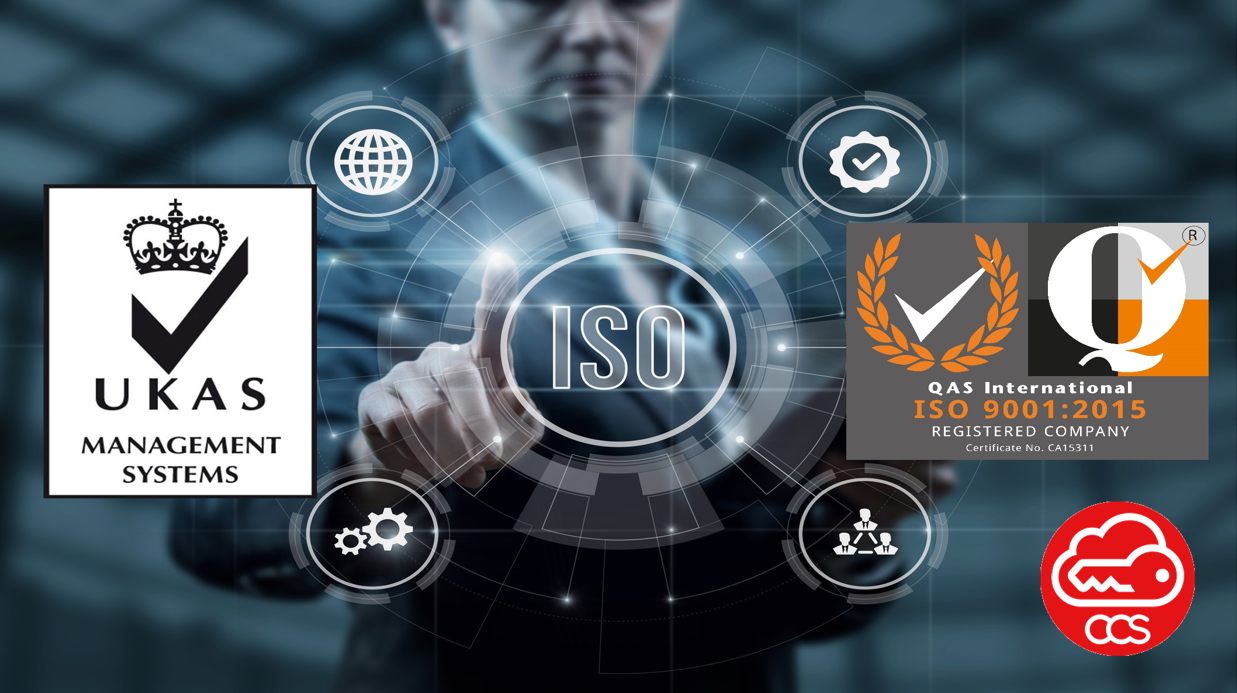Journey to Excellence:
The Road To ISO Certification
ISO certification can be provided by various types of certification bodies, and they differ in terms of accreditation and recognition. Here are some of the common types of certification bodies:
- UKAS (United Kingdom Accreditation Service):
- UKAS is the national accreditation body for the United Kingdom. UKAS-accredited certification bodies have undergone rigorous assessments to ensure their competence, impartiality, and adherence to international standards. Certification from a UKAS-accredited body is widely recognized and highly regarded, offering a high level of credibility and acceptance.
- Independent Certification Bodies:
- Independent certification bodies are not accredited by UKAS but are still recognized certification providers. They offer certification services for various ISO standards, often at a more competitive price compared to UKAS-accredited bodies. The acceptance and recognition of certifications from independent bodies may vary by industry and region.
- IAS (International Accreditation Service):
- IAS is an internationally recognized accreditation body based in the United States. IAS accreditation ensures that certification bodies meet specific standards of competence and impartiality, making certifications from IAS-accredited bodies credible on a global scale.
- IAF (International Accreditation Forum):
- IAF is a global association of accreditation bodies that oversee certification and inspection activities. Certifications from bodies accredited by IAF members are widely accepted worldwide, providing assurance of competence and impartiality.
- ANAB (ANSI National Accreditation Board):
- ANAB is a U.S.-based accreditation body that accredits certification bodies and laboratories, ensuring they meet recognized standards for competence and impartiality.
- National Accreditation Bodies:
- Many countries have their own national accreditation bodies, which assess and accredit certification bodies to ensure they meet international standards. Certifications from bodies accredited by national accreditation bodies are often widely accepted within their respective countries and regions.
- Industry-Specific Accreditation Bodies:
- Some industries have their own accreditation bodies to oversee certification processes specific to their field. For instance, the automotive industry has the International Automotive Task Force (IATF) to accredit certification bodies for ISO/TS 16949 certification.
Making the Right Choice
When choosing a certification body for ISO certification, it's essential to consider factors like the specific ISO standard you are pursuing, the industry you operate in, your geographic location, and the level of recognition and credibility required. In many cases, certifications from UKAS, IAS, IAF, or ANAB-accredited bodies offer a higher level of recognition and acceptance. However, independent certification bodies can be a cost-effective and flexible option, particularly for smaller organizations or those with specific needs.
Ultimately, the choice of a certification body should align with your organization's goals, industry requirements, and the level of recognition you aim to achieve.
Typically in the UK, when a company embarks on the path to ISO certification, a crucial decision awaits—choosing between UKAS ISO certification and independent ISO certification. UKAS accreditation, provided by the United Kingdom Accreditation Service, is highly regarded in the UK and offers a high level of competence, impartiality, and performance. On the other hand, independent ISO certification, provided by non-UKAS accredited bodies, offers flexibility and cost-effectiveness for companies.
UKAS ISO Certification: The Credible Choice
UKAS ISO certification is a trusted route for companies to demonstrate their compliance with ISO standards. UKAS certification is widely recognized and provides a high level of assurance to stakeholders. Here are some key benefits of UKAS ISO certification:
- Internationally Recognized Accreditation:
- ISO UKAS certification is accredited by the United Kingdom Accreditation Service (UKAS), an internationally recognized body. This adds credibility and assurance to the certification process.
- Increased Stakeholder Confidence:
- UKAS accreditation provides third-party validation, assuring stakeholders that the certification has been conducted by a competent and independent body. This boosts confidence in the certification's validity.
- Enhanced Market Acceptance:
- ISO UKAS certification is widely accepted by organizations globally. It is often a benchmark for demonstrating compliance with international standards, improving market acceptance and access to opportunities.
- Mitigation of Certification Risks:
- UKAS-accredited certification bodies undergo rigorous assessments to ensure competence and impartiality. Choosing ISO UKAS certification reduces the risk of disputes regarding certification validity.
- Alignment with Best Practices:
- UKAS-accredited certification bodies adhere to best practices in ISO certifications. This alignment adds credibility to the certification process.
- International Recognition and Portability:
- ISO UKAS certification is recognized worldwide, facilitating acceptance across borders without additional assessments.
- Regulatory Compliance Assurance:
- UKAS-accredited certification bodies are known for compliance with relevant regulations.
Independent ISO Certification: Tailored and Cost-Effective
Independent ISO certification offers a flexible and cost-effective alternative to UKAS certification. Here are some advantages:
- Cost-Effectiveness:
- Independent ISO certification is often cost-effective and offers competitive pricing options. This is beneficial for smaller organizations with limited budgets.
- Tailored Approach:
- Independent certification allows for a more tailored and flexible process, accommodating specific organization needs.
- Efficiency and Timeliness:
- Independent certification bodies often operate more efficiently, resulting in quicker turnaround times.
- Flexibility in Standard Interpretation:
- Independent certification offers flexibility in interpreting ISO standards to align with an organization's unique circumstances.
- Ease of Switching Certification Bodies:
- Organizations can transition to a UKAS-accredited certification body in the future, should they choose.
The Choice is Yours
The choice between independent and UKAS ISO certification depends on an organization's budget, industry requirements, and the level of accreditation recognition desired. At CCS, we value your freedom of choice, ensuring that your ISO Management System can pass any 3rd party audit. This grants the flexibility to opt for either a UKAS or an Independent certification body.
If you require UKAS Certification from the start, we work with leading UKAS certification companies, helping you connect with them and navigate the process. For those opting for Independent Certification initially, we cover the cost of a Certification Audit conducted by QAS International, a reputable independent 3rd party. Later, if you decide to recertify with a UKAS certification body, we won't charge any additional QAS International Audit fees. Our goal remains consistent: helping you implement and maintain an effective management system in accordance with ISO standards, demonstrating your commitment to quality, efficiency, and continual improvement, regardless of the certification path chosen. Your journey to excellence is in your hands.




